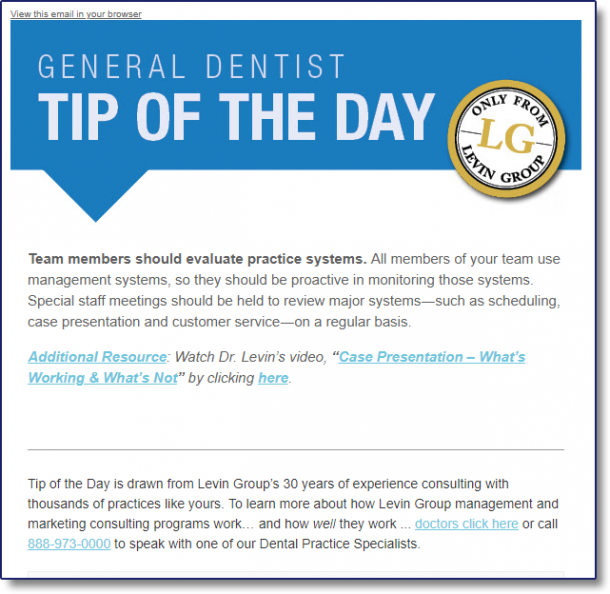Has your practice been taken over by a bunch of robots? Does it feel like your team is acting mechanically during interactions with patients? Has your customer service recently taken a nosedive?
The culprit could be scripting.
I bet more than a few of you are saying, “Wait a minute, Roger! Aren’t you one of the biggest proponents of scripting in dentistry and now you’re saying it’s bad for my practice?”
OK, before anyone blows a gasket, let’s take a step back just for just a minute…
Scripting is a tool, pure and simple. How it’s used can be good or bad. There’s a big misconception in dentistry that scripts, once created, must be followed word-for-word. When this happens, you get a team operating defensively. They’re afraid they’re going to forget the script… that they’re going to say the wrong thing. They’re so worried about making a mistake that they don’t respond genuinely to patients.
And then what happens when a patient asks a question that’s not in any script? Because, believe me, it will happen. You get a team that doesn’t know how to respond. They have become so dependent on just repeating the same scripted lines over and over that they no longer know how to actually communicate with patients.
The Right Way to Think about Scripting
Instead of being forced to memorize scripts, the staff should be taught to think of them as guides or talking points. Every script always has a goal. For instance, it can be scheduling the new patient or asking for a referral. There are multiple ways to accomplish both of these objectives, and team members should have the flexibility to hit the main points using their own words… as long as the goal is attained.
Role-playing scripts can help all team members to communicate more effectively with patients. It can also give staff the confidence to articulate the scripts in their own conversational manner. Rehearsing different versions of the same situation is another good training technique for stretching the verbal skills of each team member.
Conclusion
Let me set the record straight… Yes, I am still a big proponent of scripting, but its true goal isn’t rote memorization, but rather effective communication. You want to empower your team, not limit them. You want staff members who engage patients and visitors, rather than alienating them. Finally, you want to create a practice culture based on genuine interaction, not forced artificiality.
Additional Resource
Download Dr. Levin’s free whitepaper “Five Ways to Improve Interpersonal Relationships with Patients” by clicking here.
[thb_button link=”https://levingroup.com/practicesuccess/” class=”pull-right” style=”” rounded=”” color=”black” icon=”” size=”medium” animation=”right” ]Back to Practice Success Archive »[/thb_button]
